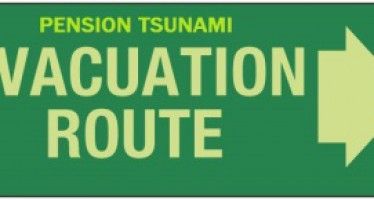Stopping cop cell-phone searches
Thanks to a little-discussed state Supreme Court decision in January, the U.S. Constitution’s Fourth Amendment protections against “unreasonable searches and seizures” don’t necessarily apply in California anymore.
Yet few of our fellow citizens have been upset about this sad loss of our liberties, the state’s law enforcement officials have been happy about the new latitude they’ve been granted to search our most personal information without limits, and efforts to roll back the decision are facing uncertainty — including a governor so closely allied with police unions that he might veto a bill restoring lost civil liberties.
It’s understandable why the case, involving a run-of-the-mill arrest of a low-level drug dealer in Ventura County, hasn’t garnered much attention. But the result of the decision is that if you are ever arrested for any reason, police can rummage through your cellphone and gather every piece of personal information and data available through that phone. Your most secret information — passwords, medical information, finances, love letters, photographs, Web searching history, etc. — are available for police inspection with no limits beyond the curiosity of the police, a real threat given that a smart phone really is a sophisticated computer.
The state high court found in People vs. Diaz that police officials had every right to search, without a warrant, the personal effects of a person who has been arrested, including that person’s cellphone.
A deputy sheriff arrested Gregory Diaz after he drove a drug dealer to a site where the dealer sold Ecstasy to a police informant. Diaz denied involvement in the deal. So after he was taken to the sheriff’s station officials searched his cellphone and found text messages that confirmed his involvement. Diaz sued to throw out the evidence found from the cellphone, arguing that the search was in violation of the Constitution.
Court Ruling
The state Supreme Court found otherwise. California justices cited the U.S. Supreme Court, which has long allowed warrantless searches of people who have been arrested and taken into police custody because the arrested person might have a weapon that could be used against the officer or have evidence that would be quickly destroyed.
“We hold that the cellphone was ‘immediately associated with (the defendant’s) person’ and that the warrantless search of the cellphone therefore was valid,” the court ruled, noting that a cellphone is a form of personal property no different than a cigarette package found in a defendant’s pocket.
The latter point turns an otherwise ho-hum case about a low-level drug dealer into a blockbuster assault on Californians’ most basic freedoms. The justices made no distinctions between items police find on an arrested person. How can justices construe that a cigarette box is no different from a smart phone, which contains unlimited files, photographs, voice recordings, contacts and even offsite file servers that are accessed through these hand-held computers?
The pre-Diaz rules didn’t impose any undue burden on police. If certain cellphone information was relevant to the case, then police were required to do what is typically done in free societies. They would ask a judge for a warrant. But post-Diaz, if you are, say, arrested for public drunkenness, then the police can take your smart phone and just rifle through all the files looking for any information that could implicate you in any crime or simply embarrass you.
“(A) search of a modern mobile device is more like a search of an arrested person’s home or business than it is like a pack of cigarettes, or wallet,” explained an analysis of the decision by Sen. Mark Leno, D-San Francisco, who introduced SB 914 to roll back the Diaz ruling.
Leno’s bill, slated to come before the full Senate after the Legislature’s recess, includes amendments to protect police, who are allowed to search a cellphone without a warrant in a case of imminent danger.
Police unions and their allies argue that defendants will quickly destroy evidence from their phones. But police can take the phones and then get a warrant. They just can’t go on fishing expeditions.
Basically, the unions and their supporters don’t want to give up new powers they’ve been granted. The law-and-order crowd wants us to blindly trust government officials. But we know from reading news stories that governments abuse their power.
Police State
Police officials often misbehave. Government agencies do not have an exemplary record with protecting personal information. I’m tired of this “If you’ve done nothing wrong, you have nothing to fear” mentality, which is the mentality of a police state.
The decision allows police agencies to evade the state’s journalistic Shield Law, which protects disclosures of sensitive information. So now if a sheriff arrests a reporter for any reason, his office has access to all the files and newsroom servers available on the reporter’s smart phone. But anyone with a smart phone — not just journalists — should support the Leno bill.
The Fourth Amendment assures us: “The right of the people to be secure in their persons, houses, papers, and effects, against unreasonable searches and seizures shall not be violated, and no warrants shall issue, but upon probable cause. … ”
This was a fundamental concern to America’s founders. In her dissent, Justice Kathryn Werdegar (then-Justice Carlos Moreno concurred) decried the decision that allows “police carte blanche, with no showing of exigency, to rummage at leisure through the wealth of personal and business information. … The majority thus sanctions a highly intrusive and unjustified type of search, one meeting neither the warrant requirement nor the reasonableness requirement of the Fourth Amendment.”
When this comes to the floor next month, California legislators, and the governor, will have a chance to restore the Fourth Amendment in California. How can this even be controversial?
— Steven Greenhut
Related Articles
America becomes Stalag 13
I was watching the classic TV sitcom “Hogan’s Heroes,” about a group of American and other allied prisoners stuck in
Judge confirms the ‘California rule’: Pensions can only go up
A state judge on Monday did a split-the-baby routine with San Jose’s voter-approved pension-reform law: “SAN JOSE — In a
Lawmakers seek soda warning labels
A group of state lawmakers wants to single out “The Coke Side of Life” for a mandatory warning label that





